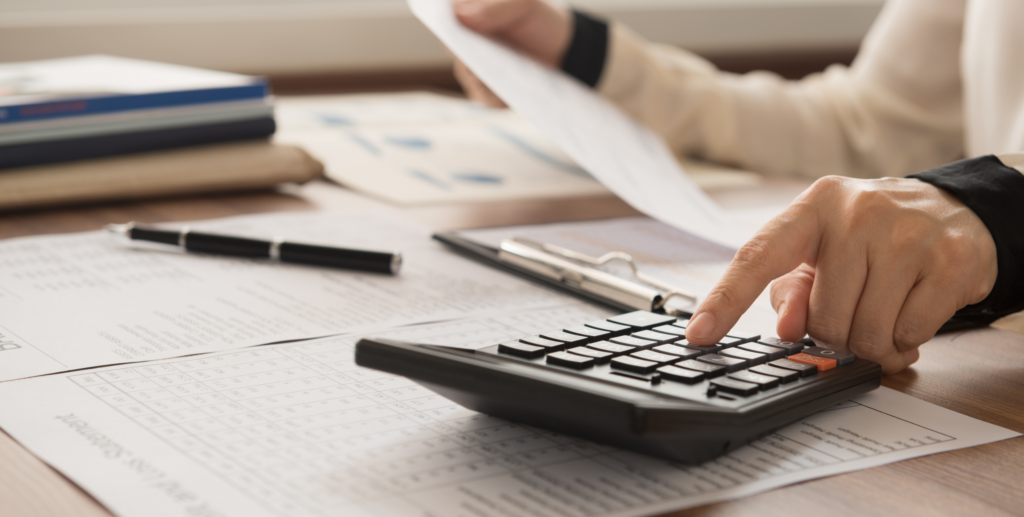Accounting for Turning Homes (Tips, Case Study, and More)


In This Article There's a lot that enters into home flipping. You require to choose the idealmarket, work out a competitive price, work with the best contractors, and get an agent to help you sell for a profit. On top of that, a defined
accounting strategy for house turning is important to your long-lasting success. Here's how to produce one. Understanding the Fundamentals of
Home Flipping Accounting Effective accounting for house
turning comes down to 2 words: accuracy and completeness. In home flipping, accuracy is a must.
Even small miscalculations can cause substantial financial losses and/or possible problem with tax authorities. Precise price quotes for purchase costs, renovation expenditures
, and resale value must never ever be neglected. Attention to detail and efficiency ensures that revenue margins are made the most of, taxes are paid in full and on time, and stress is decreased. Differences in between house flipping and rental residential or commercial property accounting With house
flipping, you focus on fast turnovers. You purchase, refurbish, and sell within
a short time frame, accounting primarily for immediate expenses and sales earnings. Your monetary success depends upon properly capturing these short-term costs and gains to understand a make money from the sale. Conversely, with rental homes, your accounting spreads out over a longer duration.
You track continuous expenses like upkeep, real estate tax, and management costs against earnings from rent. Here, you likewise consider devaluation, a technique to spread out the cost of the residential or commercial property over its useful life, which decreases your gross income. While both strategies intend to produce income, the accounting technique for each reflects their special timelines and money
circulation patterns. What should you track? There's no scarcity of products to track when accounting for home flipping. Here are the 5 primary categories: Acquisition
: Tape all purchase-related documents, including HUD declarations, tax evaluations, and insurance. Include paid seller's real estate taxes to the home basis, or
- deduct repaid taxes in the purchase year. Rehab: Track all redesigning expenses from products to labor, and remember to add enhancements( like a brand-new roofing system) to the home's initial value. Problem 1099 types to contractors if running through a service. Holding: Consist of all carrying expenses such as funding, energies, and maintenance in your records, with the option to subtract or capitalize these costs. Offering: File all selling expenses, including broker charges
- and staging expenses, and consider the impact of property taxes, transfer taxes, and mortgage prepayment charges. Income: Make sure the make money from the sale
- is accurately taped. Keep comprehensive documents for earnings confirmation and tax functions. House Flipping Accounting Tips(Beyond the Basics)The more homes you turn, the more you'll learn more about
- the accounting procedure. Along the way, you'll pick up ideas like these that can help in the future: Use of software: Leverage accounting and task management software to streamline tracking of costs, earnings, and
project timelines. Importance of forecasting: Execute
forecasting to prepare for costs, possible list prices, and market patterns. Tax and policy knowledge: Keep present with tax laws and property guidelines
- to enhance monetary strategies and make sure compliance. Professional networking: Kind relationships with industry experts for access to better
- offers and quality services. Contingency preparation: Designate a contingency fund for unexpected costs. Accounting for house flipping ends up being considerably easier when you execute these pointers, to name a few that you pick up as you get experience. Tax Strategies and Considerations for Home Flippers Wouldn't it be nice if you could turn homes without any tax ramifications? Unfortunately, that's not how the tax system works.
- A sound understanding of tax methods and associated factors to consider will ensure compliance
while putting your mind at ease. Here's a good place to start: You may likewise like Capital gains: Comprehend how to handle capital gains from house flipping, thinking about the effect of holding periods on tax rates to minimize liabilities. Earnings: Precisely report earnings from residential or commercial property sales to guarantee compliance with internal revenue service standards and utilize any suitable tax advantages
. Tax deductions: Make the most of deductions for restoration expenses, interest, and operational expenses to lower total tax responsibilities. There's a lot to discover,
so you'll want to read our supreme guide to house flipping taxes. Idea: Seek advice from a tax professional who has experience dealing with investor. Managing Capital Efficiently Managing capital is a cornerstone of successful home turning. Do it right, and you remain in a position to prosper. But do it incorrect, and it could sink your experience. The very first thing you must do is enter the practice of closely keeping track of and controlling holding costs. Expenditures, from loan interest
to energy expenses, can rapidly deteriorate profits if left uncontrolled. Regularly evaluate each expense part, negotiate better rates where possible, and ensure quick development to minimizethe period of these expenditures. Another element is handling payments to professionals and suppliers.
Developing clear payment terms in advance
and sticking to a stringent schedule helps maintain a healthy cash flow. From an individual point of view, it didn't take me long to learn the significance of having a contingency fund.
Unforeseen expenses are a reality in home flipping, and financial flexibility enables you to handle unanticipated expenses without losing control of your job. You never ever understand when an insect problem, leaky roofing, or plumbing catastrophe will strike. Through mindful planning, settlement, and budget plan management, you can efficiently handle capital. Case Study: The Accounting Process of My Very First
Flip Among the primary reasons I postponed home flipping for so long was worry of making accounting errors– more particularly, entering hot water with the internal revenue service. I'll be the very first to confess: Browsing the
accounting process the very first time was a steep knowing curve. Despite the fact that I thoroughly tracked all costs, I always seemed like I was missing out on something. This led to extra tension on top of the real process of flipping for a profit. Here are some methods I used: Used accounting software: To simplify tracking and ensure precision, I executed accounting software application into my day-to-day workflow. This assisted with organizing financial data and lowered the danger of mistakes. Employed a tax expert
: Recognizing the intricacy of tax laws, I moved to
“interview “numerous tax specialists in my city. It didn't take long to find someone with previous experience working with flippers. Got a second set of eyes: My
spouse offered a fresh viewpoint, acting as a 2nd set of eyes on our accounting. Her participation was crucial in double-checking our financials, catching errors, and offering peace of mind. Seeking Expert Advice Look for expert suggestions before you flip your first home, which ought to originate from a certified public accountant and/or financial
- advisor. They can address your questions, resolve your concerns, and assist avoid costly mistakes. With the right financing team on your side, you can focus more of your time and efforts on buying, refurbishing
- , and selling for an earnings. Tip: Use our Tax & Financial Services Finder to locate the best individual in your location. Last Thoughts No two flippers will have the same experience. For this reason, no 2 flippers will take the very same technique
- to accounting. Even so, this information can serve as your structure. Accounting for home flipping isn't nearly as challenging as it sounds when you have the ideal understanding assisting you. Your one-stop guide to earning a profit with fix-and-flips A detailed plan to prosper in your very first or next home flip
, this package will teach you how to spending plan and price quote every element of your remodelling, from cosmetic remodellings to intricate setups and upgrades. Discover the ins and outs of turning realty in any part of the economic cycle, find options for financing your turns, and undertake bigger remodelling projects. Source



